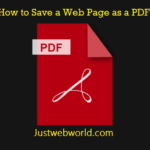If you run an online business, chances are you’ll need to either have a self hosted e-commerce site or one powered through an e-commerce platform that enables you to offer quick services to your clients. However, if you’ve never been on the market for an e-commerce suite before, it can be a challenge to understand what separates the good from the bad.
Must-Have Features for E-commerce Sites

In this article, we’re going to give you some of the most important features you should look for when shopping for an e-commerce site.
1) Security
The greatest concern for most online shoppers is security. Shoppers will only spend money on your store if they feel safe, especially when making credit card payments.
Your site should at least have 128 bit encryption and be level one PCI compliant. And by using a platform that integrates leading payment processors such as PayPal, Authorize.net and Stripe, smaller businesses can offload personal information management and make their site safer.
2) Customizability
Choose a platform with an easy to use site builder that allows you to customize its features and design easily. You also have to make it so that it can be linked to modern APIs.
A lot of platforms offer a one size fits all set of tools that may or may not work for your business. So, if there’s a tool you absolutely need that is only featured in one of their package, you’ll have no choice but to choose it even if you don’t need the other functions.
3) Analytical Tools
Good analytics tools are essential if you want to measure the performance of your online business and marketing strategies. Collecting data such as records of all transactions, your client’s browsing habits, and past purchases is important. You can collect the data manually but the process is tedious and inefficient.

A good e-commerce platform should have integrated tools that collect the data automatically as customers use your site. This will allow you to better manage your store and tweak your advertising campaigns.
4) Marketing Tools
Robust marketing tools are critical when running an online business. The tools will enable you to reach multiple customer segments and keep up with the changing customer preferences. Your e-commerce platform should have multiple marketing tools like segmented banner ads, customer driven personalization and innovative merchandising campaigns for instance.
Also, remember that a growing number of customers purchase products on their mobile phones these days and a good e-commerce platform should have marketing tools for mobile customers as well.
5) Scalability
Your new platform should respond to business growth and changes in the market or in your strategies. For instance, you may decide to switch from B2B and go direct to consumer.
Or have separate sites for DTC and B2B clients using a multi tenant system. The eCommerce suite you choose should ultimately be flexible enough to adapt to these chances and others that might occur in the future.
Conclusion
Choosing a good e-commerce platform is not only essential for you, but for the sake of your clients as well. So, before you pick one, make sure that you double check all the features and ensure that they meet your business’ needs and future plans.





